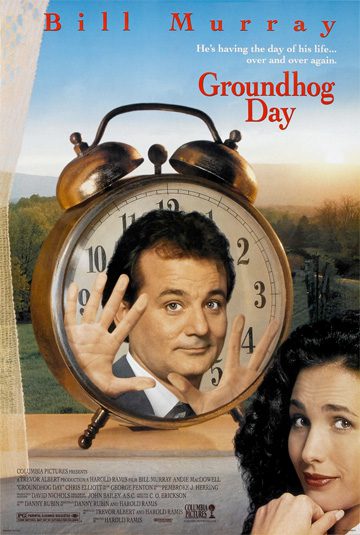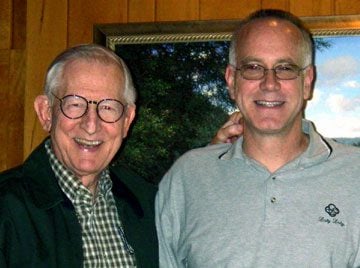 One of my all-time favorite movies is Groundhog Day, starring Bill Murray as Phil Connors, a self-centered weatherman who ends up trapped in a time warp. He is stuck in Punxsutawney, Pennsylvania, for Groundhog Day, the same Groundhog Day over and over and over again. After satisfying his hedonistic pleasures, Phil begins to grow into a person committed to helping others. For example, from experience, he knows that at precisely 11:05 a.m., a boy will fall out of a tree onto the sidewalk. So Phil makes sure to be there at exactly the right moment to catch the boy, saving him from serious injury. But, every single time, the boy runs away without even acknowledging Phil. In one scene, Phil laments, “That’s right. Never thank you, not once. You never say thank you.”
One of my all-time favorite movies is Groundhog Day, starring Bill Murray as Phil Connors, a self-centered weatherman who ends up trapped in a time warp. He is stuck in Punxsutawney, Pennsylvania, for Groundhog Day, the same Groundhog Day over and over and over again. After satisfying his hedonistic pleasures, Phil begins to grow into a person committed to helping others. For example, from experience, he knows that at precisely 11:05 a.m., a boy will fall out of a tree onto the sidewalk. So Phil makes sure to be there at exactly the right moment to catch the boy, saving him from serious injury. But, every single time, the boy runs away without even acknowledging Phil. In one scene, Phil laments, “That’s right. Never thank you, not once. You never say thank you.”
Things like this happen all the time, not just in the movies. This should not surprise us. In the New Testament, the Apostle Paul informs us that ingratitude is to be expected in “the last days,” that is, in the days between the ascension of Christ and his return. People will act in all sorts of terrible ways and will be, among other deplorable things, “ungrateful” (2 Tim. 3:2).
What is the cost of ingratitude? To be sure, one cost accrues to the person who deserves thanks. In Groundhog Day, Phil Connors is deprived of the recognition and gladness he should receive from the boy he saved. When we fail to thank God, God loses out on the recognition that he rightly deserves. So, ingratitude wrongs the one who should have received thanks.
But there is another penalty that is paid when we are ungrateful. We lose the opportunity to delight in the blessings of our lives. We deny ourselves the joy that comes to us when we give others the joy that comes from our thanks. Ingratitude deprives the one who should offer thanks of a deeper, richer, fuller experience of life’s goodness.
So, ingratitude hurts the one who should receive thanks and the one who should give it. Not surprisingly, therefore, it also fails to nourish the relationship between the two parties. Whereas, a word of thanks can build intimacy and trust; thanks neglected creates distance and guardedness.
P.S. – You can find more of my writings on Thanksgiving, including “Don’t Overlook the Heart of Thanksgiving,” in this collection of blog posts: Thanksgiving: More Than a Day.












